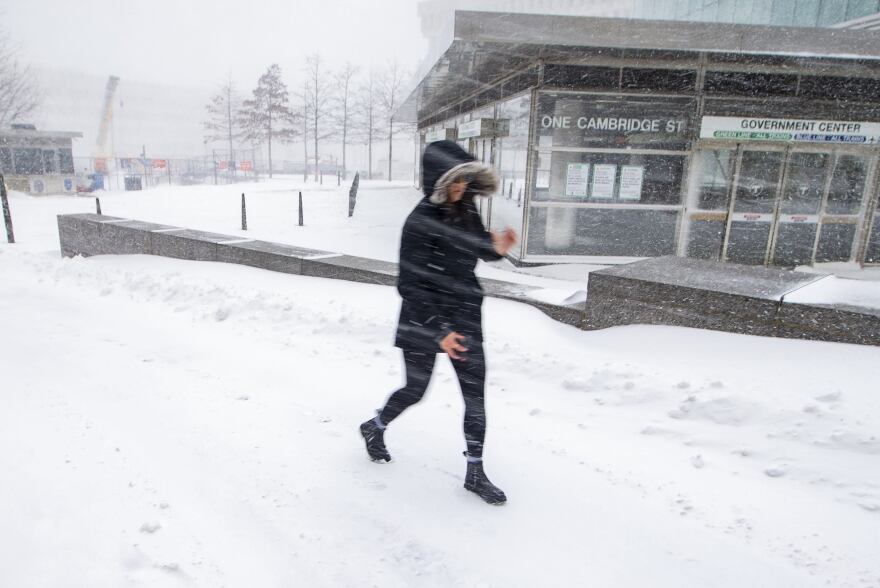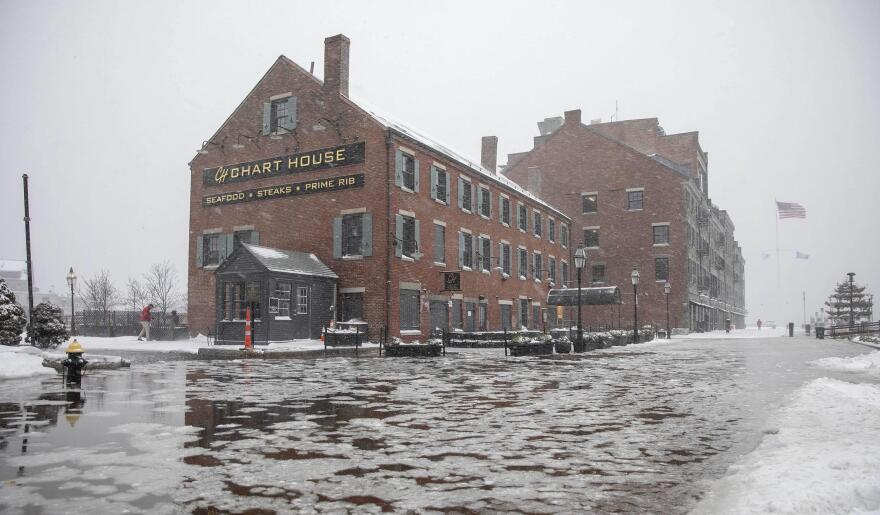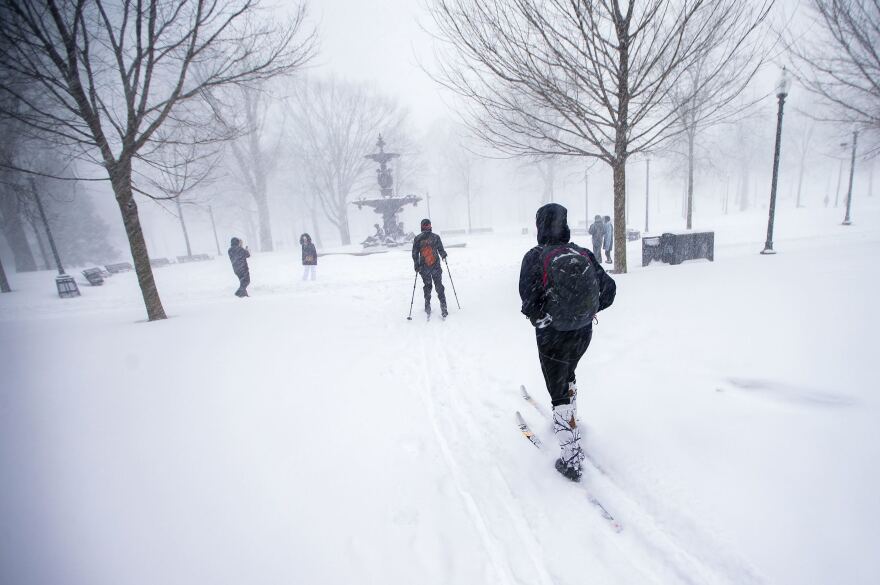People across the Northeast U.S. are spending Sunday digging out from the massive storm that swept across the region beginning on Friday, dropping snow from the Carolinas to Maine.
Snow is melting in some areas hit less hard by the storm, but workers continue to clear roads and restore power in regions that saw one or even two feet of snow, such as Massachusetts.


"If you need to go out, make plans, but be patient. Not all roads are cleared exactly the way they would be in normal conditions," Lt. Gov Karyn Polito said in a press conference Sunday morning. "And if you can stay home and enjoy the day and maybe take in some football games, do that."
Snowfall totals eclipsed 30 inches in some areas of Massachusetts, and Boston tied its record for the most snow in a single day at just under two feet, according to the National Weather Service. Parts of New York and Rhode Island saw more than two feet of snow, while sections of Connecticut, Maine and New Jersey saw more than 20 inches.

The "bomb cyclone" that brought blizzard conditions to the highly populous Northeast had largely moved out by Sunday, though New England continued to experience bone-chilling temperatures and wind.
The storm knocked out power and cancelled flights across the region
Polito said emergency crews were attempting to restore electricity for around 55,000 customers in Massachusetts, with the possibility for the outages to continue into Monday.



Virginia had around 4,900 customers without power and New Jersey had around 2,200 customers out on Sunday morning, according to the website PowerOutage.US.
There were around 1,397 cancelled U.S. flights on Sunday, the airline tracking website FlightAware reported.
The highest number of cancelled flights were at Boston's Logan International Airport and New York City's two main airports – LaGuardia and John F. Kennedy International.
Some Amtrak trains operating between Boston and Washington, D.C. were either cancelled or modified on Sunday.
Though the blizzard slammed the Northeast, other states, including Florida, saw lower-than-typical temperatures over the weekend. It prompted the NWS in Miami to warn of falling iguanas, who likely aren't dead but rather immobile due to the cold weather.
Copyright 2022 NPR. To see more, visit https://www.npr.org.



